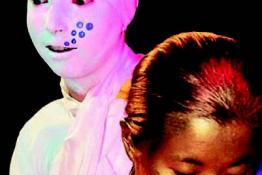Can teaching about evidence encourage a creative approach in open-ended investigations?
Issue 332 | Page 31 | Published Mar 2009
Description
Open-ended investigations give pupils the opportunity to work creatively to solve a problem. But what ideas need to be taught to enable such creativity? The empirical work reported in this case study shows that an understanding of substantive ideas is not sufficient. A procedural understanding is important. Explicit teaching of the concepts of evidence, and particularly ideas associated with uncertainty in data sets, improves pupils' investigations. The proportion of pupils who then work creatively, responding iteratively throughout the investigation, increases. The curriculum implications are discussed.
More from this issue
This article delves into the thinking process required to build a high-quality curriculum. It argues for having clear design principles upfront,...
Although science and drama are traditionally perceived as being at opposite ends of a spectrum of creativity, use of drama by students to...
A cross-curricular project, 'Indigo – the Colour Blue', aims to acquaint pupils with the topic from two different perspectives, that of...


